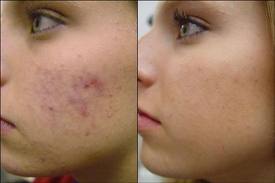The health and appearance of your skin is a representation of what’s happening inside your body. The skin is the largest organ of our body and, as well as being a protective barrier, our skin acts like a sponge, excretes excess wastes and responds to both physical as well as psychological stress. What you eat also has a powerful impact on the health of your skin, as well as the rest of your body.
Let’s focus on the integrity of your skin. Being the largest organ of the human body, total surface area is approximately 2 square metres with a total weight of 4.5 to 5 kg. The skin is a sophisticated, semi-permeable membrane that is involved in many functions critical for good health such as fluid regulation, detoxification and vitamin D synthesis. Dysfunctions of this important barrier occur in common skin conditions such as eczema, acne vulgaris and psoriasis.
 The skin produces its own antibiotics – a protective layer of skin microbes which maintain a slightly acidic pH or acid mantle. The natural fats the skin produces, called lipids, create this protective acid mantle. However, these lipids can be lost due to excess water exposure, soaps, detergents and antibacterial washes. Loss of pH may lead to loss of skin integrity, breaking down the tight junctions between the cells opening minute cracks for unwelcome bacteria to enter. Bacteria causing infection include Propionibacterium acnes, Demodex folliculorium and D. brevis, as well as Staphylococcus aureus.
The skin produces its own antibiotics – a protective layer of skin microbes which maintain a slightly acidic pH or acid mantle. The natural fats the skin produces, called lipids, create this protective acid mantle. However, these lipids can be lost due to excess water exposure, soaps, detergents and antibacterial washes. Loss of pH may lead to loss of skin integrity, breaking down the tight junctions between the cells opening minute cracks for unwelcome bacteria to enter. Bacteria causing infection include Propionibacterium acnes, Demodex folliculorium and D. brevis, as well as Staphylococcus aureus.
Skin health goes deeper than the surface. Healthy bowels = healthy skin. If the bowels are not eliminating wastes properly, then the body seeks to get rid of the toxins elsewhere. You guessed it – the skin. After all, it is a large organ. Our waste removal systems must be clear and functioning well in order to ensure clear, healthy skin.
As mentioned above, our skin also responds to stress – both physical stressors that impact directly on the barrier of the skin – but also emotional and internal stress. Stress produces stress hormones and inflammatory substances, such as cortisol, which weaken the antimicrobial and protective functions of the skin barrier leaving it susceptible to infection and inflammatory damage.
Our diet impacts on our skin as well. High carbohydrate and sugar intake have been directly linked to acne lesions. High carbohydrate diets increase insulin levels which have been linked with numerous factors in acne development – excess keratinocyte proliferation, androgen and sebum production.
Looking after your skin or correcting skin conditions, involves a multi-factoral approach in order to ensure long term results. Read about the dangers of taking a commonly prescribed drug for acne. Research has linked acne medication to inflammatory bowel disease, depression and birth defects.
Assessment and proper treatment of nutritional deficiencies may also accelerate skin repair. By treating the underlying cause rather than just applying superficial creams and lotions, your natural health practitioner can help you achieve lasting relief of skin conditions. True Medicine offers a multi-faceted approach to assessment as well as treatments to achieve the results you have always wanted. Call today on 0468 774 633.
